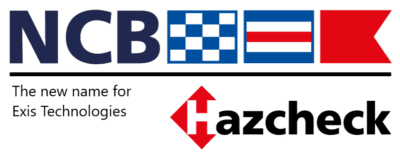Ask the Experts – Dangerous Goods by Sea
Exis Technologies, leaders in IT compliance systems for the management of dangerous goods in sea transport, have been working on several new initiatives to help improve safety in the supply chain. Here we look at some of the challenges associated with the shipment of dangerous goods.
Combatting crime
In relation to the carriage of packaged dangerous goods by sea, Amendment 38-16 of the IMDG (International Maritime Dangerous Goods) Code came into force on 1 January 2017 on a voluntary basis and became mandatory from 1 January 2018 for a period of two years until 31 December 2019. Most significant ship fires are attributable to mis-declared dangerous goods cargoes, often exacerbated by criminal non declaration or fraud. Shipping lines have, inevitably been in the vanguard of those seeking to ensure that dangerous goods are appropriately classified, packaged, packed and declared through the supply chain. This campaign has been further championed by the specialist container freight insurer TT Club, a long term proponent of safety in cargo integrity and partner of Exis.
Exis has been selling Hazcheck Systems for over thirty years as a portfolio of solutions in relation to the source material (the IMDG Code itself), cost-effective e-learning and practical support applications to assist practitioners with every aspect of achieving compliance with the regulations, through the booking, packing, marking, documentation and ship stowage processes. 9 of the top 10 global container lines use our systems and around 90% of the UK ferry lines as well as shippers, freight forwarders, logistics companies and ports.
Overcoming complexity
In a further initiative, again supported by TT Club, and its related insurance mutual, UK P&I Club, Exis has launched the latest addition to this portfolio of risk mitigation tools in relation to DG, the Hazcheck Restrictions Portal. This initiative has the potential to reduce incidents further, primarily by ironing out confusion and error in the necessarily complex operational processes involved in navigating today’s supply chains with such goods. There has been a growing awareness that each carrier has been collating its own record of restrictions in relation to house policies, ship owner policies, ship constraints (eg. number of available reefer points), and restrictions applied at the applicable ports/terminals of loading, transit, transhipment and discharge. This listing of checks itself demonstrates the complexity, possibility for error or failure to update, and pure inefficiency. The business case to engage with a different process is clear; while container carriers clearly can benefit from improving clarity on the ship-board side, the most urgent need is for the port/terminal community to upload and maintain the relevant data. We are encouraging ports and terminals to upload their data free of charge over the next two years so it can be accessed by all parties including shippers and forwarders.
Competence and assurance
Approaching a decade ago it became mandatory for all shore-side staff involved in dangerous goods transport by sea to have training.
The IMDG Code clarifies the population of ‘shore-based personnel’ as all who are involved in the shipment of dangerous goods and mandates that they receive training ‘commensurate with their responsibilities’ (before they undertake them). The dangerous goods transport activities for which training is therefore required are listed: Those who…
- classify , pack, mark, label or placard, dangerous goods.
- [pack/unpack] Cargo Transport Units
- prepare transport documents
- offer for transport
- accept for transport
- handle in transport
- prepare loading/stowage plans
- load/unload into/from ships
- carry in transport
- enforce, survey or inspect for compliance with applicable rules and regulations
- are otherwise involved in the transport of as determined by the competent authority.
The Code proceeds to describe three levels of training (General awareness/familiarization training; Function-specific training; and Safety training).
Due to the complexity of the international supply chain, the entity identified as the ‘consignor’ on the dangerous goods document may not have direct or physical control over key elements of the end-to-end process, but needs to be aware that legal liability rests with the ‘consignor’ and ensure that arrangements are in place to be in compliance with these international and national regulations. Not all ‘consignors’ will be conversant with such responsibilities, with the result that counterparties should take additional actions. Thus, echoing TT Club’s consistent advice, there are three steps inherent in achieving compliance and assurance throughout the supply chain:
1 Ensure that your own relevant employees are competent;
2 Inform all your customers, contractors and suppliers of their obligations to train to an appropriate level of competence; and
3 Obtain documentary evidence that all relevant employees of your customers, contractors and suppliers are trained to an appropriate level of competence.
Evidence of competence
While training to achieve ‘competence’ – or the ability to do a job properly – is critical and required by law, it needs to be followed through. This means that the training records not only should be maintained but also available.
The importance of carrying out due diligence was set out in relation to the CTU Code in the IMO Circular MSC.1/Circ.1531. Interestingly, that document envisages the checks being addressed to those who seek to select a ‘provider of CTU-related services’. In an age where looking counter-parties in the eye is rare, this provides a good model in both directions; it is as important for the ‘provider’ (forwarder, logistics operator or carrier) to ‘know your customer’ as for the customer to seek assurance in relation to the contractor.
James Douglas, Commercial Director, Exis Technologies







